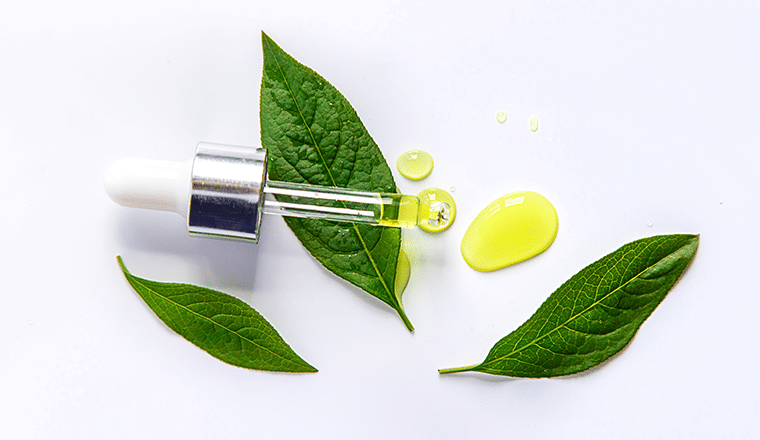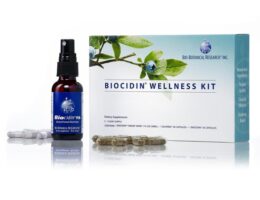
Essential oils are becoming very popular today, which is in part due to their diverse benefits and applications. From stress management to air freshening to natural cleaning powers, essential oils can be a highly beneficial tool to add to your home.
This article explores the ideal essential oils for a healthier home and overall wellness, including tea tree oil, eucalyptus essential oil, lemon essential oil, and more! You’ll also see a listing of some of the top, most trusted essential oil formulas to get you started on the right path.
What are Essential Oils?
Essential oils are highly concentrated plant extracts. The essential oils are extracted from plants via water or steam distillation, or sometimes through mechanical methods, such as cold pressing.
The end result is an oil that is highly concentrated in the specific plant’s phytochemicals and other constituents, which also leads to the very strong aroma or “essence” that essential oils are known for. But beyond just smelling good, essential oils have many potential health and cleansing benefits too, due to the different ways they affect the body and mind.
How Do They Work?
Essential oils are most commonly used in aromatherapy, in which they are inhaled through various methods. Sometimes, they are also applied to the skin (when combined with a carrier oil).
The phytochemicals in essential oils interact with different areas in the body, which may lead to benefits in a number of areas, such as:
- Stress and anxiety
- Mood
- Sleep
- Inflammation/general wellness
- Headaches and migraines
- Digestion
- Pain
Furthermore, many essential oils contain natural antimicrobial compounds, such as phenols and aldehydes, which help to ward off various fungi, bacteria, and viruses.
Specific Essential Oils for a Healthier Home
Some of the top essential oils that can be used for a healthier home include:
- Tea tree oil
- Lemon essential oil
- Eucalyptus essential oil
- Lavender essential oil
Tea tree oil has antifungal, antiseptic, and antimicrobial properties and can be used to help fight infections. Topical applications are potentially useful for acne, ringworm, and other skin concerns.
Lemon essential oil is extracted from lemon peels and contains many beneficial compounds. It may help with nausea while promoting calmer digestion. In addition, lemon essential oil may help manage pain and promote a calmer, less anxious mood.
Eucalyptus essential oil helps to open the nasal passages, which can be particularly helpful with colds or allergies. In addition, eucalyptus essential oil may help manage pain while offering antimicrobial and anti-inflammatory effects.
Lavender essential oil is very calming, which can help with stress, mood, and sleep. It also has antiseptic properties, making it a potentially valuable cleaner and disinfectant.
Other essential oils that have possible benefits for a healthier home include:
- Orange
- Peppermint
- Chamomile
- Rose
- Bergamot
- Sandalwood
- Lemongrass
- Frankincense
- And more!
How to Use Essential Oils in Your Home
You can use essential oils in many ways to create a healthier home and a healthier you. This includes inhalation, topical applications, and use within cleaning products.
Inhalation
You can inhale essential oils through several methods, including:
- Diffusion: This is done through the use of a diffuser. You mix essential oils and water into it, and it diffuses tiny particles around the room.
- The diffuser also acts as a great way to freshen up your home and create a calming, tranquil atmosphere.
- Steam inhalation: Add a few drops of essential oil to a bowl of hot water. Put a towel over your head and breathe in the steam.
- Direct inhalation: Just open up the bottle and inhale. Basic, but still effective!
Topical Applications
For topical applications, it’s best to combine essential oils with a carrier oil, such as coconut or jojoba oil. From there, simply rub on the desired areas. Typically, it’s best not to use more than 10 drops of essential oil per 1 ounce of carrier oil, but follow the bottle’s instructions and directions.
Always watch for redness or other signs of irritation, and perform a patch test first. It’s also wise to consult your doctor before applying any essential oil topically.
Cleaners and Disinfectants
It’s important to understand that essential oils don’t always have powerful cleaning or disinfecting actions on their own, but they can be effective when combined with other ingredients.
For example, you can mix a few drops of essential oils (e.g., tea tree, lemon, or lavender) with 1 cup of white vinegar and 1 cup of water, and add it to a spray bottle. This simple formula can be used as an all-purpose cleaner, while leaving surfaces with a fresh, rejuvenating smell.
Top Picks For Essential Oils
There are many high-quality essential oil formulas out there. Listed below are four options to get you started on the right track!
- Pranarom Tea Tree Essential Oil: Pranarom is one of the most trusted, high-quality brands for essential oils and other herbal formulas. Their Tea Tree Essential Oil formula can be used in many ways, such as to support healthy-looking, clear skin, and to help freshen the air.
- Pranarom Lavender Essential Oil: Pranarom Lavender Essential Oil offers calming properties for stress and sleep support, while also acting as a natural cleaner.
- Pranarom Eucalyptus Radiata Essential Oil: Pranarom Eucalyptus Radiata Essential Oil is formulated with a gentle form of eucalyptus that supports respiratory and immune health, while helping with muscle and joint concerns.
- Pranarom Lemon Essential Oil: The uplifting aroma from Pranarom Lemon Essential Oil is a great way to freshen up any environment, while also providing natural disinfectant and cleansing properties.
For specific guidelines on how to use these essential oils, make sure to check out the “Recommended Use” section on each product page.
FAQs
Can tea tree oil help with human acne?
Tea tree oil may help with acne due to its antimicrobial properties. This helps to promote clearer, healthier skin.
Does eucalyptus essential oil help with congestion in humans?
Yes, eucalyptus essential oil may help with congestion. Certain compounds in eucalyptus essential oil help open up the nasal passageways, while also soothing the respiratory tract, both of which may help congestion.
Are most essential oils safe for pets?
No. Concentrated essential oils (100%) are harmful to pets, potentially causing symptoms like unsteadiness, vomiting, diarrhea, depression, or even low body temperature. While using a diffuser briefly in a pet-free, well-ventilated space is generally safe, pets with respiratory issues may be more sensitive and should avoid exposure entirely.
Because animals have a much stronger sense of smell, even mild scents can be overwhelming. To minimize risks, keep diffusers out of reach, prevent spills, and always pet-proof areas where essential oils are used. For more guidance, call ASPCA Poison Control at (888) 426-4435.
Is lavender essential oil safe for dogs?
No. Lavender essential oil is not normally safe for dogs, but it can be used in small diluted amounts via an aromatherapy diffuser. However, it must be used as recommended.
It’s important to understand the risks when using essential oils with dogs and any other pets too. They can be dangerous when inhaled, ingested, or when in direct contact with their skin or fur. Contact your veterinarian to understand the full safety of essential oils for your pets.
Is lavender essential oil safe for cats?
No. Lavender essential oil is NOT SAFE for cats. Certain compounds in lavender essential oil may be toxic to cats, which can cause vomiting, drooling, drowsiness, and other issues.
- Cold and Flu Season Survival Guide: Practical Tips for Busy Families - November 24, 2025
- Stress, Sleep, and Digestion Support Tips for the Holidays - October 30, 2025
- What Essential Oils are Ideal for a Healthier Home? - October 22, 2025
* These statements have not been evaluated by the Food and Drug Administration. The products mentioned are not intended to diagnose, treat, cure, or prevent any disease.


